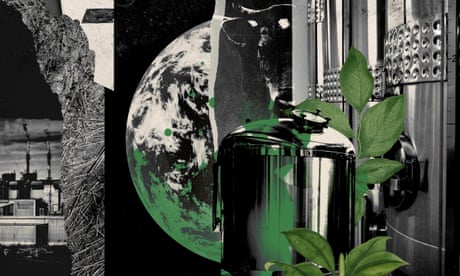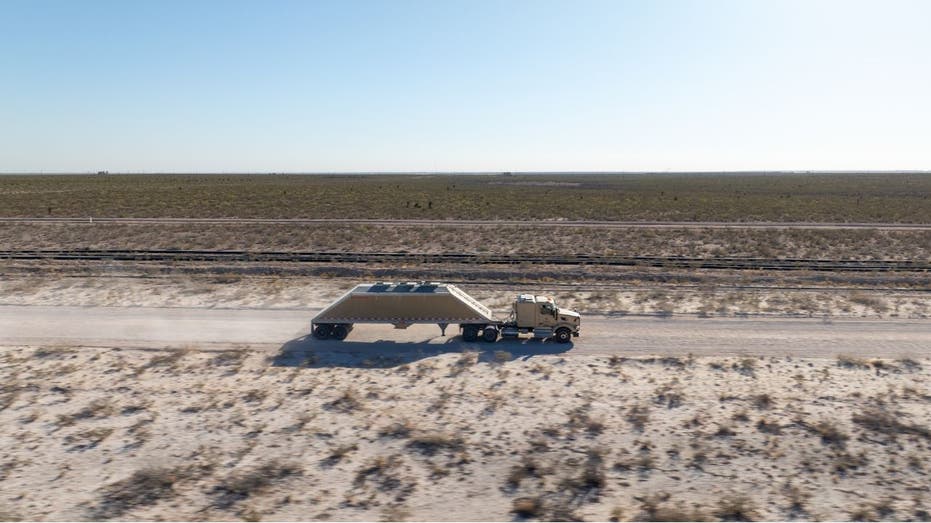- by foxnews
- 04 Feb 2025
Embrace what may be the most important green technology ever. It could save us all | George Monbiot
Embrace what may be the most important green technology ever. It could save us all | George Monbiot
- by theguardian
- 25 Nov 2022
- in technology

So what do we do now? After 27 summits and no effective action, it seems that the real purpose was to keep us talking. If governments were serious about preventing climate breakdown, there would have been no Cops 2-27. The major issues would have been resolved at Cop1, as the ozone depletion crisis was at a single summit in Montreal.
Nothing can now be achieved without mass protest, whose aim, like that of protest movements before us, is to reach the critical mass that triggers a social tipping point. But, as every protester knows, this is only part of the challenge. We also need to translate our demands into action, which requires political, economic, cultural and technological change. All are necessary, none are sufficient. Only together can they amount to the change we need to see.
Precision fermentation is a refined form of brewing, a means of multiplying microbes to create specific products. It has been used for many years to produce drugs and food additives. But now, in several labs and a few factories, scientists are developing what could be a new generation of staple foods.
The first is to shrink to a remarkable degree the footprint of food production. One paper estimates that precision fermentation using methanol needs 1,700 times less land than the most efficient agricultural means of producing protein: soy grown in the US. This suggests it might use, respectively, 138,000 and 157,000 times less land than the least efficient means: beef and lamb production. Depending on the electricity source and recycling rates, it can also enable radical reductions in water use and greenhouse gas emissions. Because the process is contained, it avoids the spillover of waste and chemicals into the wider world caused by farming.
The second astonishing possibility is breaking the extreme dependency of many nations on food shipped from distant places. Nations in the Middle East, north Africa, the Horn of Africa and Central America do not possess sufficient fertile land or water to grow enough food of their own. In other places, especially parts of sub-Saharan Africa, a combination of soil degradation, population growth and dietary change cancels out any gains in yield. But all the nations most vulnerable to food insecurity are rich in something else: sunlight. This is the feedstock required to sustain food production based on hydrogen and methanol.
Precision fermentation is at the top of its price curve, and has great potential for steep reductions. Farming multicellular organisms (plants and animals) is at the bottom of its price curve: it has pushed these creatures to their limits, and sometimes beyond. If production is distributed (which I believe is essential), every town could have an autonomous microbial brewery, making cheap protein-rich foods tailored to local markets. This technology could, in many nations, deliver food security more effectively than farming can.
The second objection is that these flours could be used to make ultra-processed foods. Yes, like wheat flour, they could. But they can also be used to radically reduce the processing involved in making substitutes for animal products, especially if the microbes are gene-edited to produce specific proteins.
This brings us to the third objection. There are major problems with certain genetically modified crops such as Roundup Ready maize, whose main purpose was to enlarge the market for a proprietary herbicide, and the dominance of the company that produced it. But GM microbes have been used uncontroversially in precision fermentation since the 1970s to produce insulin, the rennet substitute chymosin and vitamins. There is a real and terrifying genetic contamination crisis in the food industry, but it arises from business as usual: the spread of antibiotic resistance genes from livestock slurry tanks, into the soil and thence into the food chain and the living world. GM microbes paradoxically offer our best hope of stopping genetic contamination.
- by foxnews
- descember 09, 2016
Travelers flock to top religious landmarks deemed 'most Instagrammable'
Travelers visiting religious landmarks across the world may see a photo opportunity that's worthy to share on social media. Here are 10 popular spots, plus some attractions in the U.S.
read more





